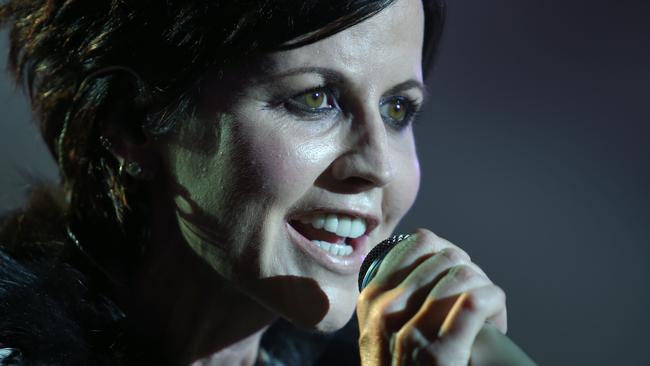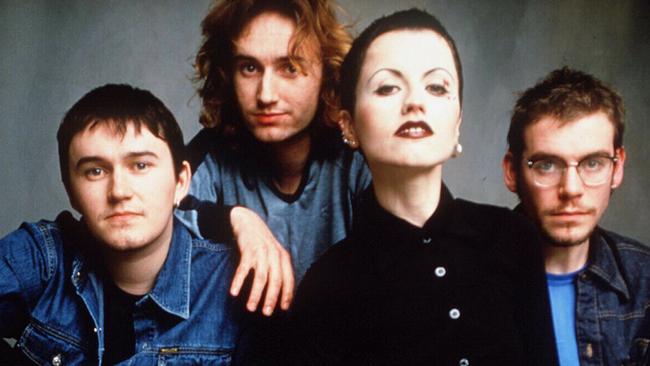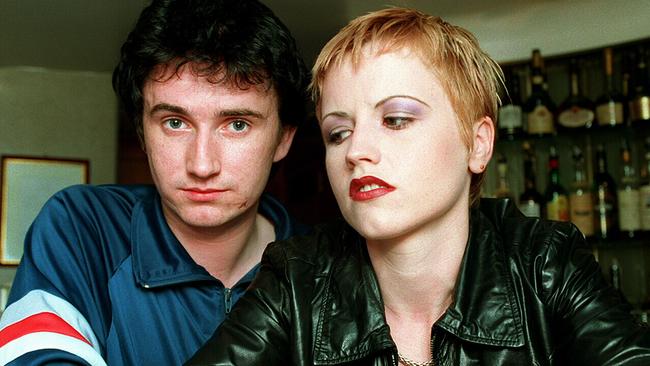Obituary: Voice of Cranberries finds peace
From the age of five, the preternaturally powerful voice of Dolores O’Riordan was a guaranteed showstopper.

From the age of five, the preternaturally powerful voice of Dolores O’Riordan was a guaranteed showstopper. “If the principal of the school cancelled her class and stood me on her desk for the 12-year-olds to listen to, it must have been good,” the frontwoman of Irish rock band the Cranberries once said. “If I started to sing, then all the others in the room would stop and listen.”
First the classroom, where her talents were built on a repertoire of traditional Gaelic songs and hymns. Then packed theatres and stadiums, as the unassuming quartet from Limerick became beloved by a global audience through a string of multi-million-selling albums released in the early to mid-1990s.
That voice, with its unmistakeable Irish lilt, cut through like few others. When backed by the elegant dynamism of her three band mates, O’Riordan became one of the most prominent pop performers in the world.
A tomboy who preferred the company of her five older brothers, O’Riordan studied piano and wrote her first song at age 12. After her successful audition to join the Cranberries in 1989, the band — brothers Noel (guitar) and Mike Hogan (bass) and drummer Fergal Lawler — wrote its first song together. Linger was a sparsely arranged acoustic tune accompanied by delicate strings.
The hook was in the quality of O’Riordan’s ethereal tones, and the striking intimacy of lyrics directed at her first boyfriend, a 17-year-old soldier who had been shipped to Lebanon. (“You have me wrapped around your finger / Do you have to let it linger?” she sang in the chorus.) It was later released as a single from the band’s 1993 debut album, Everybody Else Is Doing It, So Why Can’t We?, and became one of its signature songs.
O’Riordan was nothing if not confident in her talent. In an interview with Rolling Stone in 1995 she described her audition for the Cranberries: “The songs that they had at the time were not my taste, but I saw the potential in the playing. It was easy for me because I knew, no matter what their first impressions were, that the minute I opened my mouth that they were going to be impressed.”

Her remarkable instrument would throw open the doors to the world. When added to her skill as a songwriter and guitarist, O’Riordan was a rare triple threat. But even as her powers and fame continued to grow, she took nothing for granted. “For me, you can’t be a big fat pig up there, slovenly and singing croaky and whatnot,” she once said. “I kind of take it more seriously than that. The way I see it, there’s all these young people out there buying your CD, buying tickets to see your show, and you can’t give nothing in return. You have to work, too.”
Second album No Need to Argue contained an incandescent anti-war song named Zombie, which would soon become the group’s best-known work. O’Riordan wrote it on an acoustic guitar, late at night, after reading a newspaper account of two children who had been killed by a garbage-can bomb placed by the Irish Republican Army during the Troubles. (“Another mother’s breaking heart is taking over / When the violence causes silence, we must be mistaken,” she sang.)
“It’s a tough thing to sing about, but when you’re young you don’t think twice about things, you just grab it and do it,” she told TeamRock.com in 2017. “As you get older you develop more fear and you get more apprehensive, but when you’re young you’ve no fear.”
Zombie was an enormous hit internationally. The music video mixed stark black-and-white footage of children and soldiers on the streets of Northern Ireland with shots of the petite singer painted in gold before a cross, surrounded by silver-painted cherubs. With Zombie the Cranberries rivalled Madonna in terms of MTV airtime; today, the video has been viewed more than 659 million times on YouTube.

Australian audiences were in thrall to the group’s distinctive style. Zombie spent seven weeks atop the ARIA singles chart and ranked seventh overall in 1995, the year the group first toured Australia. The Cranberries never again met the commercial success of their first three albums, and the quartet retreated from public view after disbanding in 2003.
O’Riordan released solo albums in 2007 and 2009, to a lukewarm critical response. The Cranberries regrouped for a world tour in 2009 and last performed in Australia in 2012, in support of Roses, their first album since 2001’s Wake Up and Smell the Coffee. Last year the Cranberries released an acoustic album, Something Else, but plans to tour Europe and North America were stifled by the singer’s ongoing problems with back pain.
O’Riordan disclosed another sort of pain in 2014 when she told the Belfast Telegraph that she had been sexually abused from the age of eight to 12. “I buried it,” she said. “It is what you do initially. You bury it because you are ashamed of it. And then I got famous when I was 18 and my career took over. It was even harder then. I was putting on this charade, this perfect face. I had anorexia, then depression, a breakdown.”
In the same interview, she described her suicidal thoughts at the peak of the band’s popularity. “You get to the point where you want to die, because you think that you’ll get peace when you’re dead and you can’t get any worse than you are,” she said.
“All the songs (on third album To the Faithful Departed) were depressing and I was very depressed and I was extremely anorexic on that record. I realise now that life isn’t about money, fame. Actually, all that crap. It’s simply love that’s important.”
O’Riordan died suddenly at a hotel, aged 46, while visiting London for a recording session.
Her three band mates shared a short note with fans. “We are devastated on the passing of our friend Dolores,” wrote Lawler and the Hogan brothers. “She was an extraordinary talent and we feel very privileged to have been part of her life from 1989, when we started the Cranberries. The world has lost a true artist today.”
O’Riordan was married to Don Burton, the former tour manager for Duran Duran. The couple, who separated in 2014, had three children: Taylor, 20, Molly, 16, and Dakota, 12.
Lifeline 13 11 14



